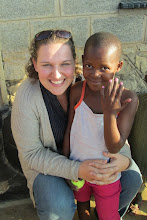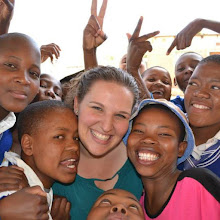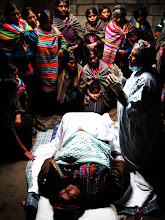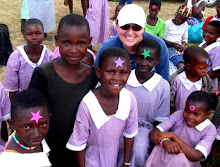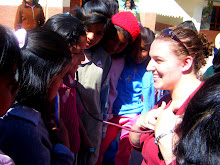In the background of every photo taken at a research site... The silent voice behind every interview transcript in a book, is the anthropologist's research assistant or translator. They are notoriously invisible figures. I have never read an ethnography that mentions them outright. Now, in the midst of my own fieldwork, I find this lack of attention to such a critical figure shocking. The truth is that an anthropologist's assistant is the facilitator of every friendship and key cultural contact; the shadow to their every move. They are simultaneously friend, employee, cook, translator, and travel companion. They prevent a hundred cultural faux pas every day. Translate endlessly, providing access to a world foreign and unknown.
And I am lucky... I have one of the best.
When I ventured into Motete at the beginning of December to begin my fieldwork, Ts'episo was by my side for the whole, exhausting ordeal. Now that we are in village she has become indispensable to me and my work. At barely 5' tall, with a beautiful, rounded face, it would be easy to think she's characteristically sweet and docile. But don't let her short stature fool you... She's a firecracker, with the quick-tempered wit and smarts to back it up. I knew we'd be fast friends and good travel/living companions when, while buying food supplies for our trip with her fiancé, Vernon, she matched my sarcasm and dry sense of humor quip for quip. She's endlessly funny, and has this wicked grin that she occasionally pulls out when, as she says, "someone is being naughty!" I now realize that she possesses a critical personality characteristic that I never thought to select for, when hiring an assistant: a robust and enduring sense-of-humor.
Tsepiso's true talent, however, seems to be knowing when to selectively turn it off and on. When in village, she can defuse awkward greetings and stiff first meetings with the village women with humor, or stand down the Chief seriously, as he sizes us up. Our work is delicate at this stage. We can't run full-force into women's rondavals asking about childbirth practices or HIV testing. Mothers hardly discuss such issues with their own daughters, no less a strange white woman and her feisty companion from the big city. Encouraging women to open up to us requires patience and social nuance- skills that, thus far, Ts'episo has in spades.
And I would be remiss if I didn't mention the countless other ways, aside from our professional work in the village, that she has eased my work at home. At the end of a long day, sitting around village with bo-Mme or running up and down village photographing a traditional cultural procession, I still have hours of writing ahead of me. My brain is full of images, memories, new vocabulary words and names of remote villages, that need to be committed to paper, sooner rather than later... And that doesn't even include the inevitable exhaustion of navigating a foreign language all day, or the stack of academic literature and books that still sits unread on the make-shift pile of boxes-turned-table by my bed. This is where Ts'episo's presence has proven a true gift. She is an AMAZING cook, and carries the burden of most of our minimal housework, while I run off to a quiet corner to read and write. Her sweet bread (which I successfully cooked myself for the first time a few days ago!) is honestly the most delicious bread I have ever had in my entire life. We currently have the kitchen set up in my room... So as she cooks in the evening, she frequently endures my endless questions. "What did that mean?" "Why did Mme say that?" "Did you catch the look between those men? Was that anything important?" "Tell me what she said again." It's never-ending for her. Long after a simple, seemingly meaningless conversation or interaction is over, I'm still asking her to relive it- repeat it- explain it again. She has a seriously difficult job, and I am incredibly grateful for her enduring it with a smile.
There is one more, absolutely important reason that I now find the absence of the research assistant/translator from most anthropological documentation and analysis untenable... Aside from being critically important to making my fieldwork possible, I am now also acutely aware that use of a translator introduces an additional level of complexity to executing fieldwork AND, understandably, an additional source of potential error in the results. In documenting what I observe, I acknowledge that every word I write is not cultural fact... I am a filter. Everything I see and hear passes through me, before it arrives in some semi-material state on paper. With a translator, however, I add further distance between myself and my research subjects. I am not the only filter in this equation anymore: Ts'episo is one as well. As someone who obsesses about controlling the accuracy and ethical standards of the work, acknowledging that I don't necessarily have full control of potential cultural biases is an unsettling reality. (The even harder truth, is that I am even likely unwitting of many of my own biases as well!) Both Ts'episo AND I each brought our own stereotypes, preconceived notions, and subconscious beliefs, behaviors, and systems of meaning with us into the field. Grappling with such complexity, as I begin my fieldwork, has been daunting. I expect that things will run more smoothly as our familiarity with each others' speech patterns, thought processes, and our shared understanding of the goal and direction of our work improves. We will eventually develop a rhythm which allows us to work as a unified team during interviews, but that takes time. For now, we occasionally trip over each other... Not significantly, just adjusting to each other's priorities, expectations, and preferences in the field: Conversations or interactions that I find important and would like to have fully translated may not always seem relevant to her... Or things that she would like to buy or have for us living in village, I don't think are necessary. It can be challenging; frustrating for "Type-A" me. But these minor hiccups are inevitable when you are living, working, and traveling with one person 24-7, but we'll work through them over time.
For now, I am grateful to not be a LONE anthropologist, and thankful that she's by my side, as I venture into this unknown quagmire called fieldwork.
With love from Lesotho, Mary E.
PS. One more reason to love Ts'episo: What other Mosotho research assistant would, while cooking dinner, break into a sing-along dance party with me to Sam Smith's "Not the Only One"?? I mean, really... She's currently rocking it out.
My research assistant is awesome. :)
